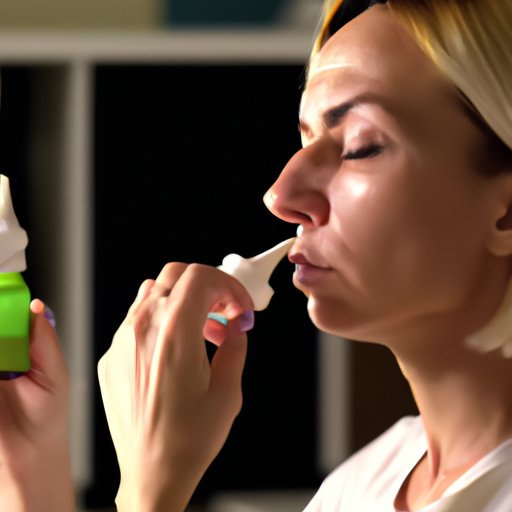
How to Stop Post Nasal Drip Cough: Tips and Remedies
Post nasal drip cough occurs when excess mucus in the nose drips down the back of the throat, triggering a cough. This condition is often caused by allergies, weather changes, irritants, and sinus infections, and can be very uncomfortable and frustrating. If you are experiencing post nasal drip cough, there are several things that you can do to alleviate the symptoms. In this article, we will explore some effective tips and remedies for stopping post nasal drip cough.
Identifying and Avoiding Triggers
One of the most important things you can do to stop post nasal drip cough is to identify and avoid triggers. Common triggers include:
- Allergies
- Weather changes
- Irritants
- Sinus infections
To avoid triggers, you can:
- Avoid allergens such as pollen, dust, and animal dander
- Monitor weather conditions and stay indoors during extreme weather changes
- Avoid irritants such as smoke, pollution, and strong perfumes
- Practice good hygiene by washing your hands frequently and avoiding close contact with others who are sick
Home Remedies to Soothe Cough
There are also several home remedies that can help soothe post nasal drip cough. Some of the most effective remedies include:
- Steam inhalation
- Salt water gargles
- Honey
- Peppermint tea
You can use these remedies as follows:
- Steam inhalation: Boil a pot of water, remove from heat, and add a few drops of essential oil if desired. Drape a towel over your head and inhale the steam for 5-10 minutes.
- Salt water gargles: Mix 1/4 to 1/2 teaspoon of salt with 8 ounces of warm water and gargle for 30 seconds.
- Honey: Add a teaspoon of honey to warm water, tea, or lemon juice to soothe your throat.
- Peppermint tea: Brew peppermint tea and drink it warm to help open up your airways.
Additional tips for soothing coughs at home include:
- Sleeping with your head elevated
- Using a humidifier
- Avoiding alcohol and caffeine
- Drinking plenty of fluids
Medications to Ease Symptoms
If home remedies are not effective, medication may be necessary to ease post nasal drip cough symptoms. There are several types of medication that can be used, including:
- Nasal sprays
- Antihistamines
- Decongestants
Each type of medication has its own benefits and risks. Nasal sprays can help reduce inflammation in the nose, antihistamines can help reduce allergy symptoms, and decongestants can help reduce mucus production. However, these medications can also have side effects such as drowsiness, dry mouth, and increased blood pressure.
It is important to follow the instructions on the package carefully when using medication to treat post nasal drip cough.
Lifestyle Changes to Reduce Cough
Finally, long-term changes to your lifestyle can help reduce post nasal drip cough symptoms over time. Some lifestyle changes that can make a difference include:
- Avoiding smoking or exposure to secondhand smoke
- Drinking plenty of fluids to thin out mucus
- Maintaining good hygiene to reduce the risk of infection
- Keeping your environment dust-free by cleaning surfaces regularly
By making these changes, you can reduce the frequency and severity of post nasal drip cough over time.
When to Seek Medical Help
While most post nasal drip cough cases can be treated at home, there are some warning signs that indicate you should seek medical attention. These include:
- Difficulty breathing
- Coughing up blood
- Persistent cough lasting longer than 10 days
- Fever
If you experience any of these symptoms, contact your healthcare provider immediately.
Conclusion
If you are experiencing post nasal drip cough, there are several things you can do to alleviate symptoms and reduce the frequency of coughing. By identifying and avoiding triggers, using home remedies and medications, and making lifestyle changes, you can find relief from this uncomfortable condition. Remember, it is important to seek medical help if you experience any warning signs or if your symptoms persist.





